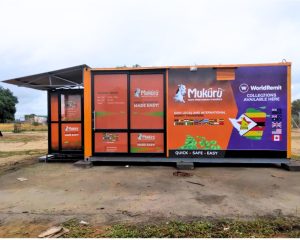

MUKURU, a leading provider of financial services, is significantly transforming the financial industry landscape in Zimbabwe with its Enterprise Payments Platform (EPP).
The platform offers a secure, efficient, and cost-effective solution for collections and bulk payments, revolutionising the distribution of humanitarian aid to vulnerable refugees, as well as payroll and commercial payments, particularly within the agricultural sector.
Mukuru’s Head of Commercial and Strategic Planning Michael Scott said innovative collaborations with organisations such as Premier Tobacco Auction floors and various United Nations agencies—including the World Food Programme (WFP), WHO, UNICEF, and IOM—are pivotal in transforming the financial services industry.

Established in 2004, Mukuru has broadened its financial services to address the requirements of unbanked communities, modernise payment options for farmers, and facilitate grant distribution for UN humanitarian agencies.
“We are the largest international person-to-person money transfer organisation in Southern Africa that has over the years evolved along with our customers’ needs into being a fully-fledged next-generation financial services platform that caters for the emerging African consumers’ needs and are not just limited to remittances,” said Scott.
Established in 2004, Mukuru has broadened its financial services to address the requirements of unbanked communities, modernise payment options for farmers, and facilitate grant distribution for UN humanitarian agencies.
Scott emphasised that Mukuru’s EPP occupies a distinctive position between the banking sector and mobile network operators.
With its extensive reach and dependable liquidity, the platform effectively connects these sectors by providing essential banking services in both rural and urban settings.
“This is especially vital for Zimbabwe’s smallholder cotton, tobacco farmers and agricultural workers who often face challenges in accessing financial services in remote locations,” he said.
He also pointed out that Mukuru’s collaboration in 2023 with Cottco, a major cotton purchasing company in Zimbabwe with an 80% market share, has streamlined payment processes for farmers.
According to Scott, the innovations within the EPP program have greatly alleviated the challenges faced by unbanked workers in rural areas and reduced the need for farmers to travel long distances to access their earnings.
In 2023, Mukuru managed the majority of payments to smallholder cotton farmers through a secure, corporate-run network, ensuring that they received their cash in convenient and accessible locations.
“Farmers can leave the auction floor or drop-off points with a Mukuru voucher on their phone, confident they can collect their funds anywhere in the country, without the risk of carrying cash,” he said. This solution has not only improved financial accessibility for farmers but has also fostered trust, bolstered by Mukuru’s two-decade presence in Zimbabwe.
Scott further mentioned that Mukuru’s dedication to financial inclusion goes beyond the agricultural sector.
The company has a long-standing partnership with the WFP to provide cash assistance to vulnerable refugees at the Tongogara refugee camp.
Through this collaboration, Mukuru has set up a semi-permanent distribution facility at the camp, complete with tellers, VSAT technology for internet access, and a dedicated team to ensure efficient fund disbursements.
“By providing a reliable, traceable method of cash distribution, we’ve not only supported refugees but also created job opportunities within the camp. Our tellers are recruited from among the refugees. This initiative has contributed to both financial inclusion and upward social mobility for the camp’s residents, empowering them with a source of income while fostering a sense of stability and hope,” said Scott.
Some advantages of Mukuru’s EPP include the immediate transfer of funds to beneficiaries through cash collection points or digital wallets, which offer comprehensive transaction tracking that enhances transparency—an essential factor for aid agencies’ financial reporting to secure ongoing funding.